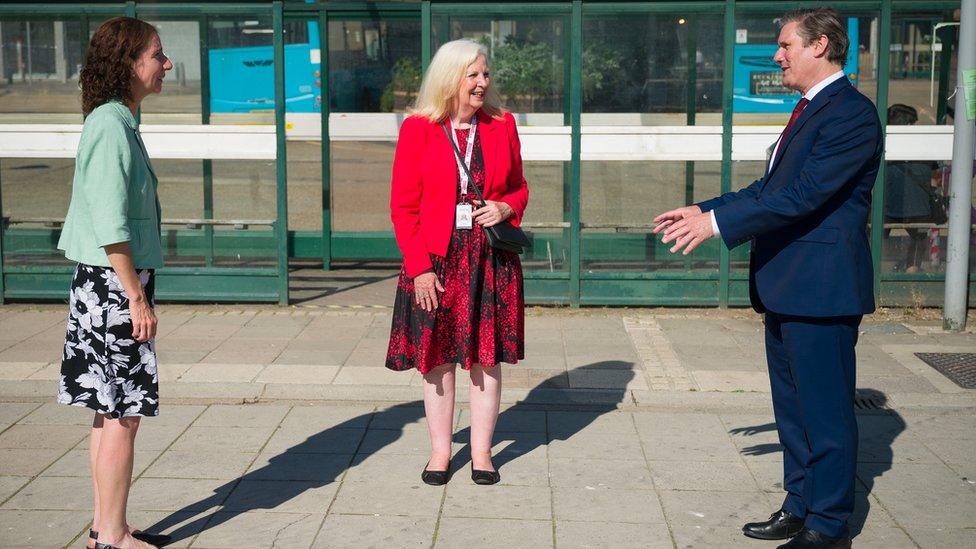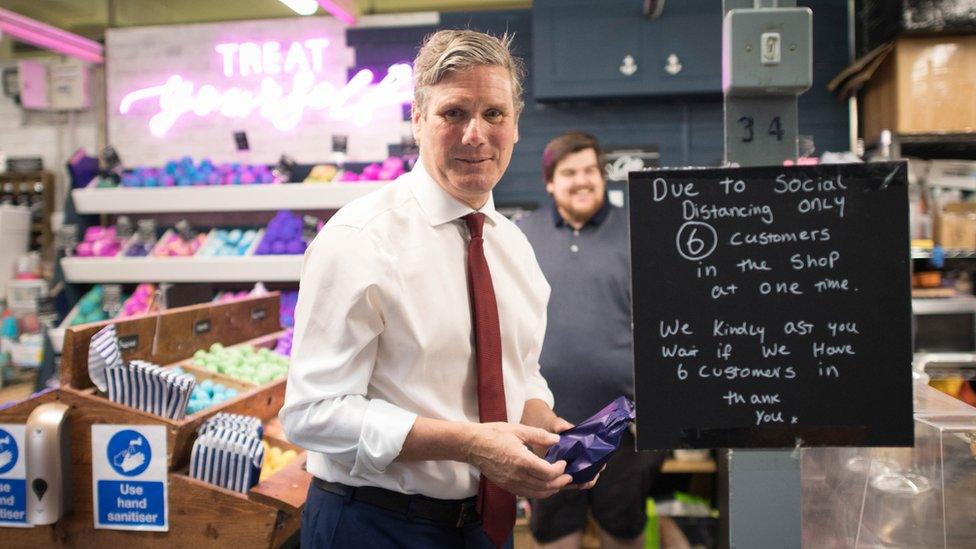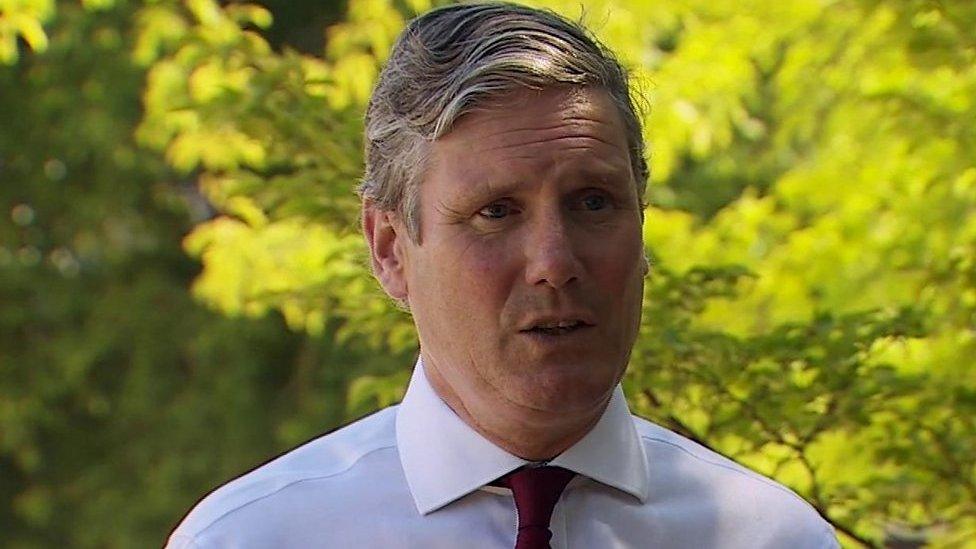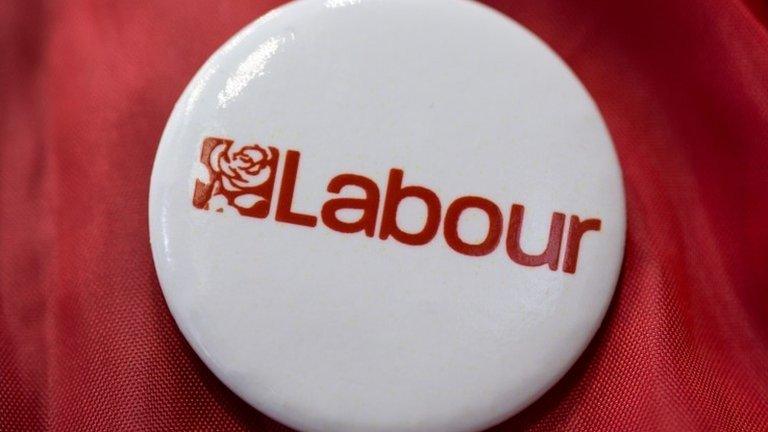Long-Bailey sacking risks reopening internal Labour tensions
- Published

Sir Keir Starmer had a socially-distanced meeting with the leader of Stevenage Council
"He seems a nice fella."
This morning, we watched the Labour leader perform what's known in the jargon as a walkabout.
Sir Keir Starmer was in Stevenage in Hertfordshire, held by Labour from 1997 until 2010, but by the Tories since then.
With social distancing in force, the normal "grip-and-grins" politicians take part in during these sessions were rather different.
There were no handshakes, and no high fives with unsuspecting children who happen to be out shopping with their families.
But for Sir Keir, it was his first chance at all to get out to meet the public in real life in his relatively new post.
Remember, he had to give his crucial speech accepting the Labour leadership in his own front room. The public has seen only him in Parliament, or in a clutch of press interviews over the last few months.
The party has found an increasingly confident presence as the government's green-bench opponents, alongside the fading influence of Jeremy Corbyn's supporters.
But while his victory in the leadership contest has made huge waves in Westminster, it's plain that he still has work to do to cut through to the public.
Before they can do much, opposition leaders have to build a rapport and recognition with the public. As we made our way around Stevenage market, it was obvious that work is far from complete.

Lewis on the fish stall told us he seemed nice enough after they had a chat, but before today he just hadn't heard of him at all.
Ryan, who sells beauty goodies, was well aware of who he was and that he was turning the party away from Jeremy Corbyn. But was not ready to put faith in him just yet, joking that he was "friendly and approachable, but all politicians are when they are out in the open!"
Labour's polling numbers have certainly improved, but as his team is aware, the brutal truth is that many members of the public do not yet know who he is.
That, of course, is the point of events like today's, and the digital mega conference calls that he's been trying to do in the last few months. Like it or not, political leaders who don't get recognised find it hard to get noticed too.
Swift action
But there's a different goal, which Sir Keir's backers believe today he scored, showing that he is willing to act decisively when things go wrong in his own party after a sometimes chaotic and often bitter era under Jeremy Corbyn.
As we discussed here so many times, racism against Jewish people was a completely toxic issue during Mr Corbyn's time in the top job.
Accusations were always denied, but he was considered by many inside and outside the party to have a blind spot when it came to anti-Semitism.
Having carefully avoided irritating Mr Corbyn's tribe in the party during the leadership campaign, when his former leadership rival Rebecca Long-Bailey shared an online article containing an "anti-Semitic conspiracy theory", Sir Keir moved fast to sack her.
For the leader's backers, and many in the Jewish community, his actions are proof that he meant his promises of zero-tolerance on anti-Semitism and will do what he said.
There is relief and respect in those circles. But there is a risk.
Internal tensions
Breaking out online tonight, there is real irritation among the section of the Labour Party that stood by Jeremy Corbyn. A left-wing group of MPs requested a meeting with the leader to protest, but that was denied.
Thus far, Sir Keir had managed to stop internal tensions from bubbling over. But his move today might drive them out into the open, and may even drive some members away.
His team certainly believed it is the right thing to do, and indeed, a public dispute with the left could prove politically useful as a way of showing a real break with Jeremy Corbyn's project.
Sir Keir has certainly shown today that he has more going on than simply being a "nice fella".
But as Labour has discovered over the years to its electoral cost, parties at war with themselves tend not to win.
- Published25 June 2020

- Published18 May 2020

